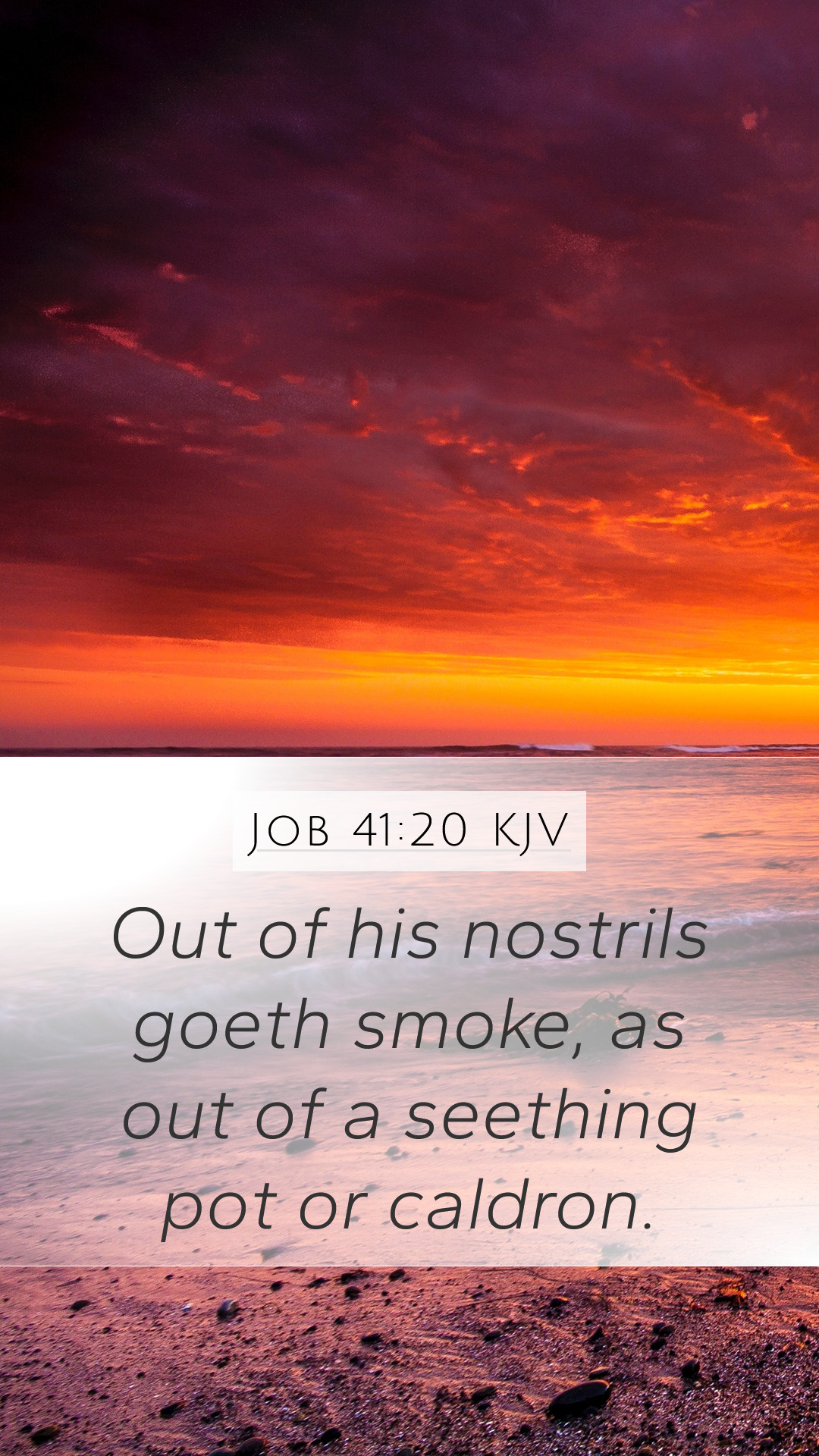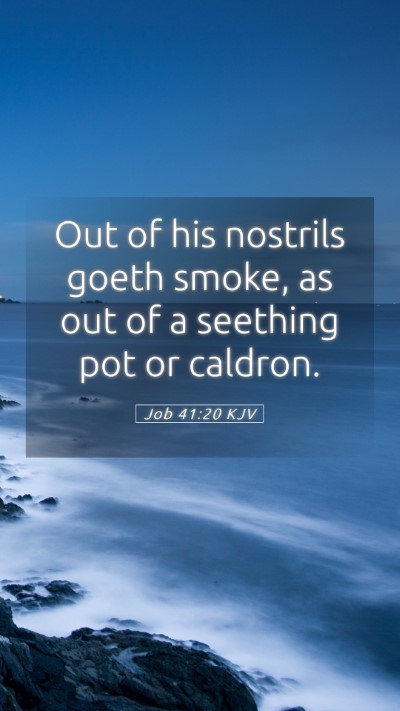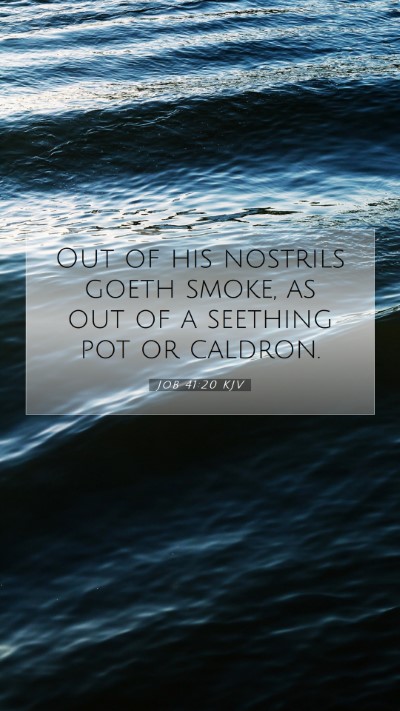Understanding Job 41:20
The verse Job 41:20 states, "Out of his nostrils goeth smoke, as out of a seething pot or cauldron." This vivid imagery describes the fearsome creature, Leviathan, which is often interpreted as symbolism for chaos and power in the natural world. Here, we delve into the meanings derived from public domain commentaries, exploring its interpretations, understandings, and implications for today’s readers.
Bible Verse Explanations
This verse comes from one of the most intriguing sections of the book of Job, where God describes Leviathan, a creature representing immense strength and untameable nature.
Insights from Public Domain Commentaries
-
Matthew Henry's Commentary:
Henry interprets Leviathan as emblematic of God's creation, highlighting the majestic and formidable aspects of the creature. This verse illustrates God's omnipotent authority over even the most fearsome of His creations, reminding readers of the power and sovereignty of God in both the natural world and human experience.
-
Albert Barnes' Notes:
Barnes emphasizes the awe-inspiring nature of Leviathan, using the imagery of smoke rising from its nostrils to signify the creature's terrifying presence. This serves as a symbolic representation of the chaotic elements in the world that are beyond human control, inviting believers to trust in God's power and governance over all creation.
-
Adam Clarke's Commentary:
Clarke offers a more detailed exploration of the symbolism within the verse. He connects the lowly and chaotic aspects depicted by the smoke to the broader themes of turmoil and challenges faced in life. The inspection of Leviathan serves as a metaphor for the trials Job undergoes, prompting contemplation of God's role amid personal struggles.
Scripture Analysis
In analyzing this scripture, it is essential to consider its historical context. The Book of Job addresses the suffering of the innocent and God's justice. Job 41:20, by presenting a fierce creature, signifies that God's creation is both powerful and terrifying, bringing forth reflections on the nature of evil and chaos in the world.
Meaning of the Imagery
The imagery found in Job 41:20 reveals several layers of meaning:
- Representation of Power: The Leviathan is not merely an animal; it captures the essence of power that nothing human can control.
- Symbol of Chaos: Smoke is often associated with confusion and chaos, suggesting that there are forces in the world that are challenging and beyond comprehension.
- Call to Trust: The description serves as a reassurance of God's control over His creation, urging believers to place their trust in Him even when faced with overwhelming circumstances.
Cross References
Job 41:20 can be cross-referenced with several related scriptures:
- Psalm 74:14: "Thou brakest the heads of leviathan in pieces, and gavest him to be meat to the people inhabiting the wilderness."
- Isaiah 27:1: "In that day the Lord with his sore and great and strong sword shall punish leviathan the piercing serpent, even leviathan that crooked serpent; and he shall slay the dragon that is in the sea."
- Job 40:15-24: Discusses Behemoth, further emphasizing creatures of immense power that God created.
Applying Bible Verses to Daily Life
The application of Job 41:20 encourages reflection on how we view chaos and power in our lives. Believers can find solace in knowing that, despite the tumultuous forces they may face, they serve a God who governs all creation. This understanding can foster confidence and strengthen one's faith amidst adversity.
Bible Study Insights
For those engaging in Bible study groups or exploring online Bible study resources, Job 41:20 serves as an essential verse to guide discussions around the nature of God’s power versus human vulnerability. Use this passage as a starting point for deeper discussions about God's creation, justice, and the mysteries of suffering.
Bible Study Resources
Consider incorporating the following tools and resources:
- Bible study guides focusing on the Book of Job.
- Online Bible study platforms that facilitate discussion on Old Testament themes.
- Works of Biblical exegesis that provide deeper insights into the poetry and imagery used in Job.
Conclusion
Job 41:20 encapsulates profound truths regarding chaos, power, and the sovereignty of God. By engaging with the various commentaries and analyses, students of scripture can deepen their understanding of this complex verse. Embracing these insights can enrich personal faith and encourage thoughtful application within everyday life.


